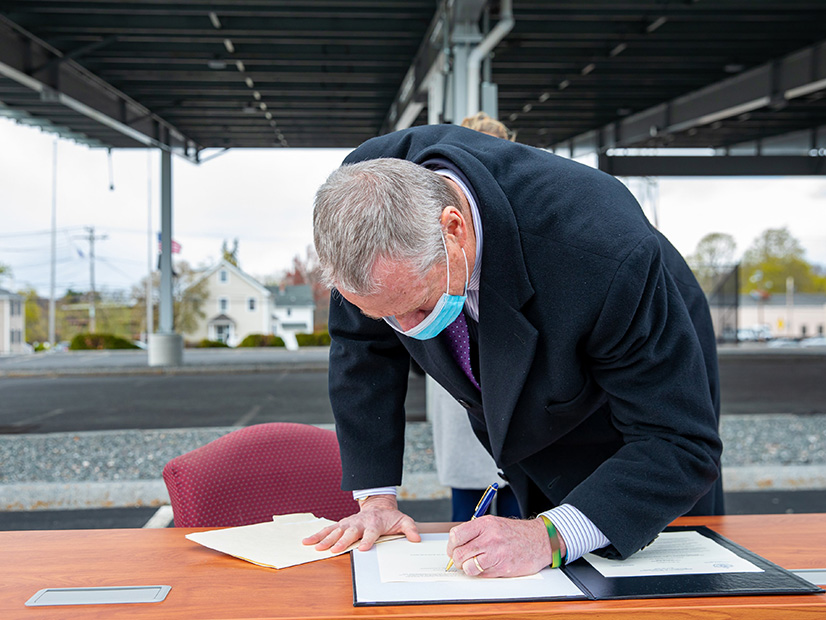Gov. Charlie Baker last week signed an executive order to reduce greenhouse gas emissions and spur energy efficiency at state-run entities.
The order directs government agencies to purchase only zero-emission vehicles (ZEV) for state fleets starting next year and double the number of electric charging stations at state facilities by 2030.
New construction at agencies must meet new energy performance standards, install high-efficiency heating and cooling systems and meet the pending specialized stretch energy code when it is finalized.
This leadership by the government on emissions is “fundamental,” Larry Chretien, executive director of the nonprofit organization Green Energy Consumers Alliance, told NetZero Insider.
Drivers will see more EVs on the road, and “a lot of people don’t realize how ready these cars are,” Chretien said.
Car buyers in today’s market mostly think about upfront price instead of long-term maintenance costs. By mandating that all state fleets buy ZEVs, the administration is placing an emphasis on looking at the total cost of ownership, which is lower for ZEVs compared to internal combustion engines.
“The state government is looking to adopt long-term benefits, which is what I want as a taxpayer,” Chretien said.
And the economics for ZEVs are getting better, he said.
When demand for gas goes up, the price of gas goes up. But the opposite is true for clean energy: When demand goes up, the cost goes down. The new executive order raises demand for ZEVs, which will create a good market for everyone, Chretien said.
Employers will need to think about providing charging stations so workers can charge their cars before their commutes. Doubling the number of charging stations installed at state facilities over the next decade means the state is leading by example, Chretien said.
The order comes as large international conglomerates such as Honda commit to selling only electric vehicles in North America by 2040.
Last year, Baker released a plan that will require all new cars sold in the state to be electric by 2035. The state also passed comprehensive climate legislation that includes a legally binding commitment to reduce the state’s carbon emissions to 50% below 1990 levels by 2030.
Massachusetts’ Leading by Example program, which works across state agencies and public universities to advance clean energy, reduced greenhouse gas emissions by 35% below 2004 levels in state government operations.
The order will “support these continued efforts, reduce emissions and lead to cost savings for many of our public universities and buildings,” Lieutenant Governor Karyn Polito said in a statement.




